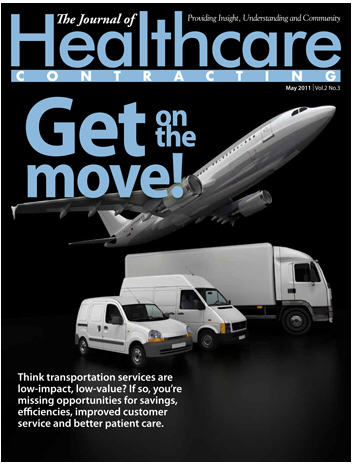One such article from the May 2011 cover story of The Journal of Healthcare Contracting titled “Get on the Move!” by Robert Handfield, Ph.D, was especially interesting. In the article, Dr. Handfield reveals the results of his survey of Integrated Delivery Networks (IDNs) and Healthcare systems, as well as in-depth interviews conducted with executives and providers. His goal in conducting the study was to learn more about how healthcare leaders satisfy their transportation needs and develop a recommended methodology for tackling this important issue.
The article makes many good points, but the first that jumped out at me was: “Perhaps most significantly, almost all of the IDNs surveyed (87 percent) have never performed a formal in-source/outsource analysis of transportation.”
With purchased services accounting for over 30 percent of total spend of IDNs—according to the survey—the very limited number who have conducted transportation analysis (13%), may seem surprising. But, in our experience, it’s not. The true value of dedicated healthcare transportation is often overlooked.
Dr. Handfield goes on: “Many supply chain executives believe transportation merely involves ‘moving things from point A to point B,’ and view transportation as low value.” But, consider this: According to the Center for Disease Control and Prevention, each year, 83% of adults and 90% of children in the United States have contact with a health care professional. Those interactions, taken in total, add up to more than 1.1 billion ambulatory care visits to physician offices, hospital outpatient departments and emergency rooms annually.
Every one of those interactions could require the transport of medically important (and often times irreplaceable) materials such as medical specimens, pharmaceuticals, x-rays, medical records or all of the aforementioned. Patients don’t consider the error-free transportation of the materials that are essential to their care as low value. Maybe it’s time for healthcare transportation to be part of the dialogue about patient care?
What are your thoughts on the value of healthcare transportation? How does your organization handle it – internally, via a third-party courier? Answer the poll on the left or post a comment. We are interested in hearing from you.
